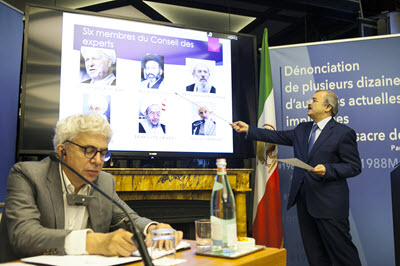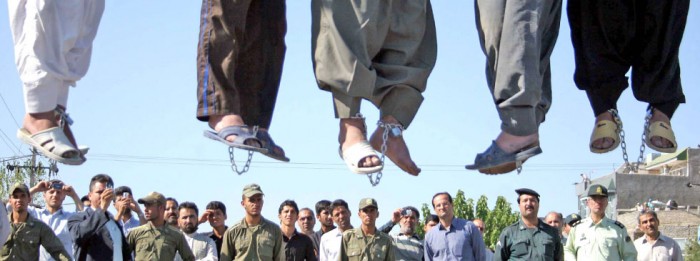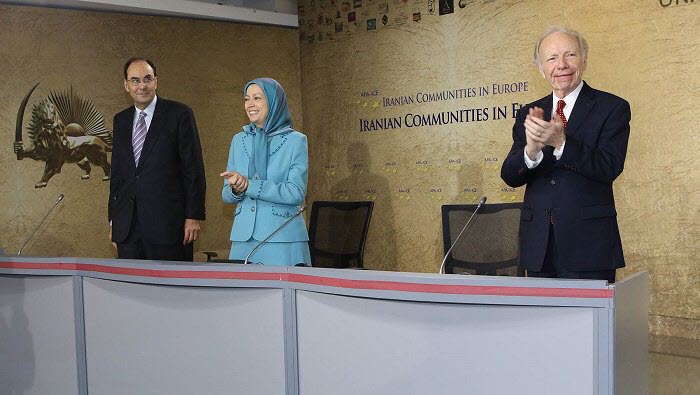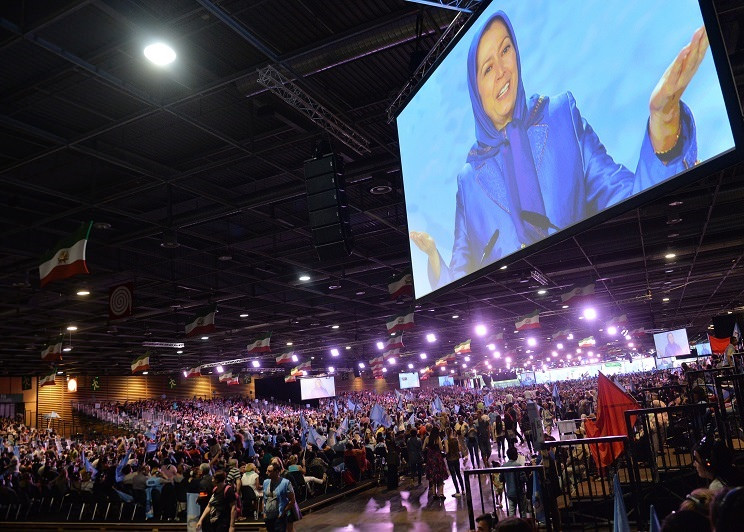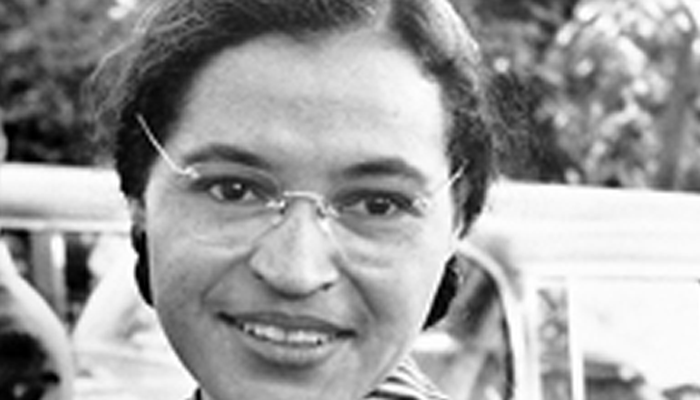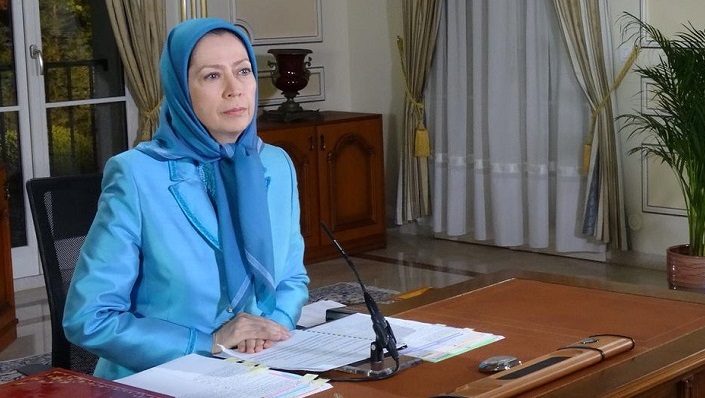
Maryam Rajavi, President-elect of Iran’s main opposition, the National Council of Resistance of Iran(NCRI), speaks during the Free Iran 2018 gathering in Paris-july 2018
In the scope of issues facing Iranian-Americans today related to their homeland, you would think the Iran lobby would have better things to do than publicly trash Iranian dissident and opposition groups on a near-daily basis.
The Iran lobby, especially the National Iranian American Council and a variety of bloggers sympathetic to the Iranian regime, have recently stepped up the vitriol considering widening and near constant protests and demonstrations that have rocked the regime’s grip on power.
What is interesting is that almost all the groups making up the Iran lobby are using nearly identical language focused on trying to disprove the idea that the Mujahedeen-e-Khalq(MEK), one of the largest and oldest Iranian dissident groups, has any support within Iran.
For example, Nahal Toosi, a foreign affairs correspondent at POLITICO, writes in a piece about the Trump administration’s efforts to support regime change in Iran, that:
“One Iranian diaspora faction that has supported many Trump policies is the Mujahedeen-e-Khalq, a group with leftist roots that the U.S. previously listed as a terrorist outfit. But the MEK has few backers in Iran, even though it has major defenders among Trump’s aides and confidants. Among those who’ve spoken at MEK, events are Trump’s national security adviser, John Bolton.”
Notably, she mentions that the NIAC is being excluded from a meeting between Secretary of State Mike Pompeo and members of the Iranian-American community at the Ronald Reagan Presidential Library in Simi Valley, California this weekend, but neglects to mention the NIAC’s deep ties to Iranian regime leaders.
Against the backdrop of hot national debate over the Russian government’s use of third-parties to infiltrate American organizations such as the National Rifle Association to affect U.S. policy, the lack of any investigation or focus on the NIAC’s efforts to do the same thing with the backing of the Iranian government is hypocritical to say the least.
Mahsa Rouhi, a research fellow with the nonproliferation and nuclear policy program at the International Institute for Strategic Studies, similarly tries to belittle the MEK in a piece for Foreign Policy, writing “the MEK has no support base inside Iran; in fact, etc.”
But what both Toosi and Rouhi fail to mention are the significant contributions the MEK has made over the years in revealing the regime’s human rights abuses and uncovering its secret nuclear program; none of which could be accomplished without the support and help of Iranians living within Iran who smuggled out clandestine photos and video.
These are not the acts of a few lone dissenters, but rather a strong, clear and forceful expression of the willingness of Iranians to cooperate and help the MEK over the years even though the regime has worked obsessively hard at criminalizing any cooperation with the MEK punishable by imprisonment or even death.
It is hard to credit the Iran lobby with any factual data pointing to zero support within Iran for the MEK given its long history of organizing protests from large-scale mass demonstrations to small, individual acts of defiance such as hanging a banner praising dissident leader Mrs. Maryam Rajavi, the acting president of the National Council of Resistance of Iran, over a Tehran overpass to standing atop a box waving a hijab in defiance of morality codes.
Even top mullah Ali Khamenei has been forced to give several speeches recently to denounce the MEK as he recognizes the group’s growing influence on the protests rocking the country; at last count over 142 cities has experienced protests despite massive security crackdowns by the regime.
It’s noteworthy that the Iran lobby discounts the similarities between Iran and other despotic regimes such as North Korea, Cuba and even the old Soviet Union, in which compulsory voting often delivered election “mandates” for the government, but never reflected the true feelings of the population.
Similarly, Iran discounts any support for the MEK when it actively bans its participation in any elections and refuses to allow any of its members to run for elected office. It is doubtful that Toosi or Rouhi can even justify denying a group such as the MEK a chance at the polls to settle the question once and for all about who the Iranian people back to lead them into democracy and freedom.
Most disturbing and yet telling has been the recent arrests of an Iranian diplomat and other agents accused to attempting to plant a 500-gram bomb at an annual gathering of the MEK and other resistance groups outside of Paris last month.
The captured explosive was comprised of TATP, a favorite explosive for terrorists because it is easily prepared from readily available retail ingredients, such as hair bleach and nail polish remover. It is also able to evade detection because it is one of the few high explosives that do not contain nitrogen and can, therefore, pass undetected through traditional explosive detection scanners designed to detect nitrogenous explosives.
TATP has been used in bomb and suicide attacks and in improvised explosive devices, including the London bombings on 7 July 2005, where four suicide bombers killed 52 people and injured more than 700. It was one of the explosives used by the “shoe bomber” Richard Reid in his 2001 failed shoe bomb attempt and was used by the suicide bombers in the November 2015 Paris attacks, 2016 Brussels bombings, Manchester Arena bombing and June 2017 Brussels attack.
The arrest in Germany of Asadollah Assadi, a diplomat at the Iranian embassy in Vienna who – in his capacity as an operative for the Iranian Ministry of Intelligence and Security (MOIS) – provided the explosives, draws a clear line from the Iranian regime to efforts to destroy the MEK.
Had the terror plot been successful there is no telling what toll it would have taken on the gathering of roughly 100,000 supporters of the NCRI. In addition to Iranian expatriates and NCRI officials, the event included participation and speeches by hundreds of political dignitaries from throughout the world – including prominent American and European politicians representing multiple political parties.
It’s unfortunate the Iran lobby doesn’t talk about those potential lives lost.
